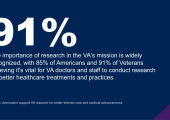Is Direct-to-Consumer Advertising for Drug Samples Effective?
empty
The number of Americans who take prescription drugs is increasing, and so is the percentage that receives prescription drug samples from their doctors. Across most of the drug classes that do Direct-to-Consumer (DTC) advertising, drug sample receipt has experienced double-digit growth.
This surge in free drug sample receipt is the result of increased competition among drug companies to encourage patient trial. Drug sample promotion has been particularly strong in categories where competition has intensified, spurred by new drug launches as well as drugs being withdrawn from the market.
But is promoting free drug samples in consumer advertising an effective way to boost brand awareness and generate usage? Are consumers requesting free samples for advertised, brand name drugs as well as prescriptions? How is the marketplace changing in America among patients who fill prescriptions for drugs and the proportion that receive prescription drug samples from their doctors?
We examined tracking data of consumer purchasing behavior to discover any trends among consumers who received free drug samples from their doctors, including prescriptions filled and whether they saw direct-to-consumer advertising by the top spending categories: Asthma COX-2 Inhibitors, Oral Anti-Histamines, PPI's, SSRI/SNRI/Wellbutrin and Statins.
We discovered that more consumers are asking their doctors for prescription drug samples - and getting them. Moreover, these informed, proactive patients are more likely to fill prescriptions for the brands they have sampled than consumers who do not ask their doctors for samples by name.
Consumers are not only requesting prescriptions for advertised brand name drugs, they've also become savvy enough to request specific samples from their doctors. Direct-to-consumer advertising by major pharmaceutical drug manufacturers has done a good job of raising brand recognition and disease awareness.
The flip side is that, while DTC helps drive patients to request drug samples and ultimately prescription fulfillment, consumers who request samples are more likely to be uninsured than those who don't request samples.
Across the leading DTC drug classes explored, a quarter-to-a-third of the sample recipients requested the prescription drug sample received. With the exception of the Proton Pump Inhibitor (PPI) drug class indicated for treatment of acid reflux and COX-2 Inhibitors indicated for the treatment of arthritis and pain, the leading DTC drug classes experienced double-digit growth in patient requests for samples. This rate of growth for sample requests is more significant than the numbers who ask for the prescription instead.
Do consumers who receive samples go on to fill a prescription for those brands? It depends on the drug class and patient need (episodic versus chronic conditions). Some heavily promoted prescription brands realize higher levels of script fulfillment than others.
Among consumers who ask for a free drug sample, between one-quarter and one-half go on to fill the script for the drug. For example, 16% of Clarinex sample recipients in the January through June 2002 period not only received a sample for Clarinex, but also filled a Clarinex prescription. This level is less than half that realized for Advair and Lipitor that both treat chronic conditions. In the case of Clarinex, the sample supply coupled with the episodic nature of the condition it treats (allergic rhinitis) appears to have allowed patients to remedy their condition entirely with the sample received.
As noted earlier, DTC is not the only reason consumers request drug samples. In most cases, they are less likely to have prescription drug insurance. The lack of insurance issue was most evident for Statins, COX-2 Inhibitors, and Asthma Controllers.
Sample promotion works, but...
Promoting samples in DTC messaging does work. It's proven to be an effective way to raise brand awareness and generate consumer trial. Still, there is the danger that over-sampling within certain therapeutic classes, such as allergy treatment, will mean fewer prescriptions filled and lost sales.

![[WEBINAR] Innovation Reignited: How C-suite leaders can break through saturated, high-pressure markets](/sites/default/files/styles/related_more_insights/public/ct/event/2025-08/alchemy.png?itok=pdxip4SP)

![[WEBINAR] Brand America 2025](/sites/default/files/styles/related_more_insights/public/ct/event/2025-09/thumbnail-templates.jpg?itok=rg-5GRLi)